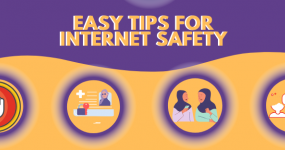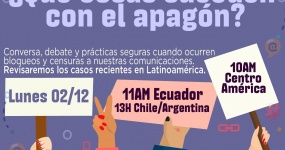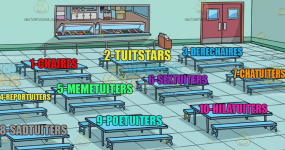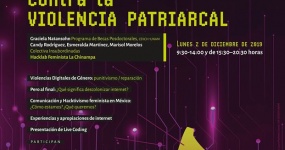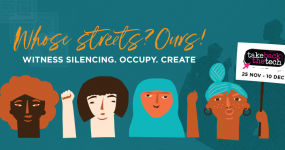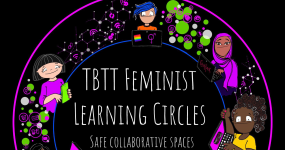This piece was originally published by the Foundation for Media Alternatives (FMA). You can also consult their recent analysis, using the TBTT mapping tool, of online gender-based violence in the Philippines in this article. While the Internet has grown to become a basic need for people to access information, services, and form social connections and communities, it similarly allows for same…
This is not just another of the dozens of articles about COVID-19 apps already published in the media around the world. This post is based on the assertion that we women experience a continuum of surveillance over our bodies, and that this control is exacerbated during health crises. We are not safe when we move around cities. We are raped or killed just for walking down the street, but we are…
The world is suddenly and radically changed. But this is not the radical change that we as feminists, activists, thinkers and campaigners had hoped for. At the APC Women’s Rights Programme (WRP) we believe in putting people at the centre and leading with care and responsibility for each other, ourselves and the planet. We work towards imagining and making a feminist internet, and as much as the…
In October 2019, student protests ignited in Chile, the first was in response to an increase in transport fares in the capital. The movement rapidly gained momentum. It was a revolt against increasingly extreme inequalities, privatisation and neo-liberalism. Government repression was not long in coming: a state of emergency, curfews, internet shutdowns, censorship on social networks, police…
"I can't upload this video", "they deleted my post because it's considered 'sensitive content'," "they closed my account" or "I lost my connection" are some of the requests for help repeatedly heard in different parts of Latin America. The focused censorship has been notable during the enormous social upheavals that continue today with massive street demonstrations and the strong participation of…
We have talked before about what we think are the steps to take when it comes to combating hate and discrimination online. But this time we want to delve deeper into a specific topic: conversation analysis.Ideally, this analysis is carried out prior to any act of communication. In practice, this is not always the case, as we often come across campaigns that, apart from repeating the same old…
How do we appropriate the internet? This was one of the questions that most resonated with me during the Cyber/hack/feminist Meeting against Patriarchal Violence held December 2 at the Center for Interdisciplinary Research in Sciences and Humanities of UNAM (Mexico).And do we really want to appropriate it? - given the burden of power relations implied in this phrase. Haydeé said appropriation is…
Take Back the Tech! is a campaign that reclaims the internet and women's often ignored herstory with technology, exploring and encouraging the creative use of digital technologies to denounce and eliminate online gender-based violence (GBV). Its name echoes back to the Take Back the Night marches all over the world, where women reclaimed public streets as their own, especially at night when they…
A daisy with a blurry pastel background, a sunset in an enchanting landscape, more flowers, coffee cups... If you are a Whatsapp user, you've probably encountered them a lot: “good morning” forwards. They might be flowing through your Whatsapp family groups, you might forward them yourself or you might be tired of seeing them everyday. Apparently, these specific forwards are so popular around…
For Take Back the Tech! the internet is a space for play, exploration, experimentation and learning, as well as a vital political space of free association and expression. That’s why we created a series of online sharing sessions so that TBTT campaigners and other curious cyberfeminists from all over the world can participate, create and put their knowledge into action to occupy the internet…

